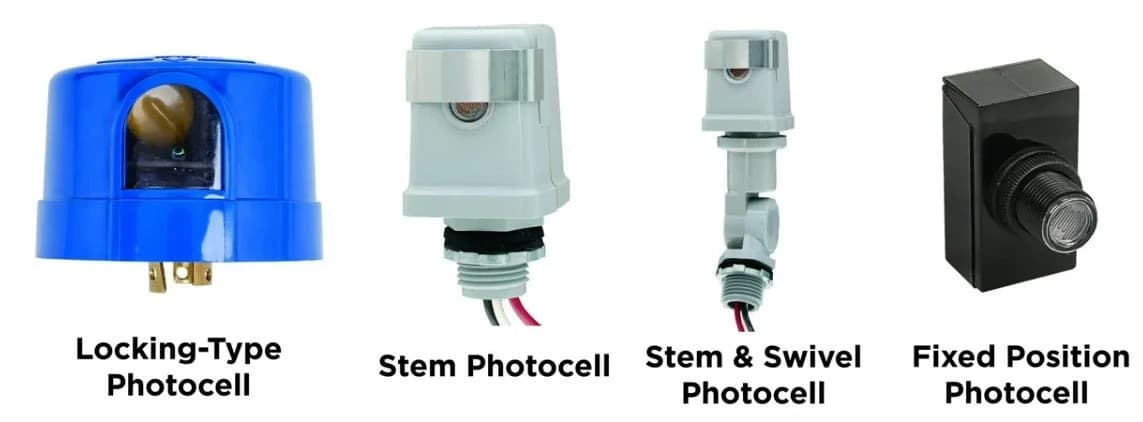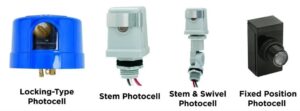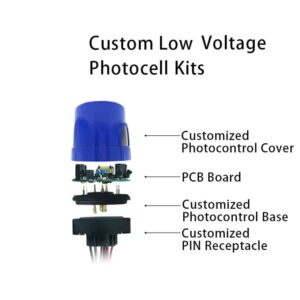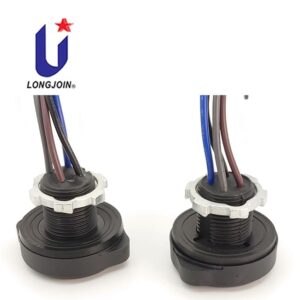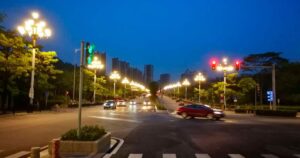Tipi di fotocellule, vantaggi principali e guida alla selezione
Introdurre
Dusk-to-dawn sensors are called photocells. They are the backbone of modern smart lighting systems today. They sense changes in natural light. They trigger connected lights to switch on or off without any human help. This simple principle has transformed energy use in cities, streets, and even private homes.
At Long-Join, we are trusted makers of photocell technology. We build reliable products that last. We also guide decision-makers to pick the right sensor for each lighting setup and environment alike. This guide covers photocells—what they are and how they work. It shows the types, the benefits, and what to check when choosing.

What Is a Photocell and How Does It Work?
Photocell sensors sound complex. They aren’t. It’s a tiny light-sensing eye that spots changes in brightness and tells the system what to do automatically.
At its core, a photocell turns light into electricity with photoelectric conversion. Sunlight or a lamp hits the sensor. It responds and sends an electrical signal. When light drops, a photocell switch turns lights on automatically. It senses the change and acts right away. When daylight returns, the sensor signals, and the lights switch off again.
Differences Between Phototransistors and IF Filter Phototransistors
Not all photocells are the same. Two common technologies stand out:
Caratteristica | Fototransistor | IF Filter Phototransistor |
Sensibilità | High, reacts quickly to light | More stable, reduces interference |
Applicazioni | Illuminazione generale per esterni | Urban environments with lots of background light |
Vantaggio | Cost-effective | Precision control, less false triggering |
The choice between the two depends on whether your lighting project is in a stable or highly variable environment.
What Types of Photocells Does Long-Join Offer?
Are you wondering which photocell for street light or building project is right for you? Long-Join provides multiple types, each designed for different needs.
1. Wire-In Controller
- Directly connected to wiring circuits.
- Affordable and reliable.
- Best for small-scale outdoor or indoor lighting.
2. Twist-Lock Photocell Switch
- Designed for easy replacement using standardized connectors.
- Widely used in photocell street light
- Compatibile con Prese NEMAand industry receptacles.
3. Smart Type Photocell
- Equipped with communication protocols.
- Allows remote control light
- Ideal for smart cities and energy-saving projects.
4. Zhaga Type Controller
- Compact design, compatible with Presa Zhaga
- Easy integration with modern LED street light photocell
Smart Control Components
Beyond standalone sensors, Long-Join also develops photocontrol receptacle products, including:
- NEMA series(7-pin receptacles, widely used in smart grids).
- Zhaga Book 18 seriesfor modular and compact outdoor controllers.
These solutions allow cities to build scalable and future-proof lighting networks.
Why Are Long-Join Photocells Considered Advantageous?
Why are sensori fotocellula dal tramonto all'alba trusted across industries? Their core benefits make them essential in both urban and rural deployments.
Vantaggio | Spiegazione | Esempio |
Alta efficienza energetica | Lights only switch on when needed, reducing waste. | City street networks saving up to 40% power annually. |
Easy Automation | No need for manual switches. | Building perimeters light up automatically at dusk. |
Maggiore sicurezza | Reliable in harsh conditions. | IP66-rated photocells withstand rain, dust, and snow. |
Long Life Design | Built to endure 30,000+ cycles. | Reduced maintenance costs for municipalities. |
At Long-Join, these features are built into every light photocell sensor we design, ensuring performance and durability.
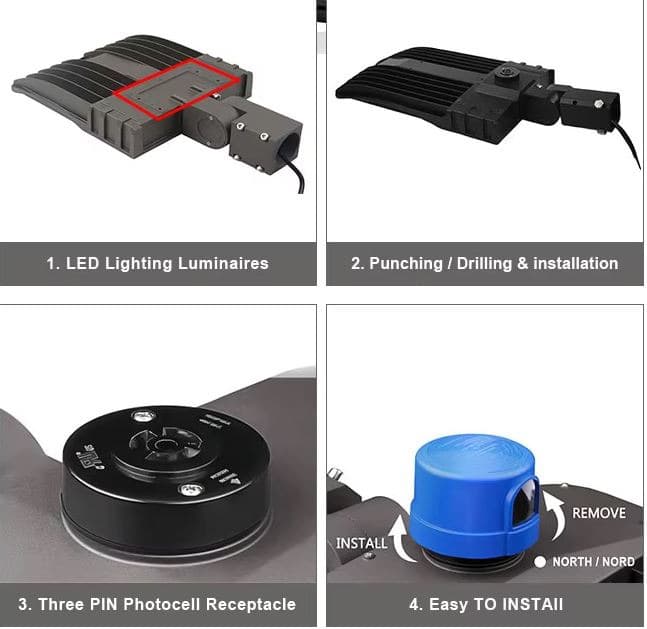
What Should You Consider When Choosing a Photocell?
When selecting a photocell, buyers often face confusing specifications. Asking the right questions helps avoid errors. What environments will the sensor work in? What electrical system is it compatible with? How much flexibility do you need? We’ll go through each factor, step by step, to make the decision process clear.
Sensitivity Adjustment Capability
Is the photocell too sensitive to minor light changes? Overly sensitive devices may switch on unnecessarily. Adjustable sensitivity ensures the sensor responds only when appropriate. For example, commercial plazas may require a higher threshold than residential driveways.
Voltage Compatibility and Application Range
Can the photocell handle the voltage in your system? Always match the product rating to your network. Long-Join provides high-voltage models like photocell 220V for municipal use and low-voltage options such as photocell sensor 12V for solar or off-grid projects.
Flessibilità di installazione
Will the photocell have clear exposure to natural light? Placement matters. Horizontal designs suit pole-mounted lights, while vertical models work better on wall fixtures. Choosing the right orientation avoids false readings and system downtime.
IP Protection and Waterproof Performance
What happens when rain, dust, or snow hits your lighting infrastructure? Always check the IP rating. Long-Join offers IP54, IP65, IP66, and IP67 options. An IP66 outdoor photocell light sensor provides robust performance against storms and salty coastal air.
Protezione contro le sovratensioni
Can the device survive electrical spikes? Poor surge resistance shortens lifespan. Advanced models like Long-Join’s JL-207C integrate strong surge protection, keeping lights reliable even in unstable grids.
Cross-Zero Technology
How does the photocell manage switching cycles? Cross-zero technology reduces current shock when lights switch on and off. This protects both the photocell switch and the luminaire, extending the service life.
Cost, Warranty, and Standards Compliance
Does the photocell balance price with quality? Look past features. Check warranty, ensure CE or UL compliance, and also count long-term maintenance savings. These factors show value. They help cities and businesses invest in smart lighting.
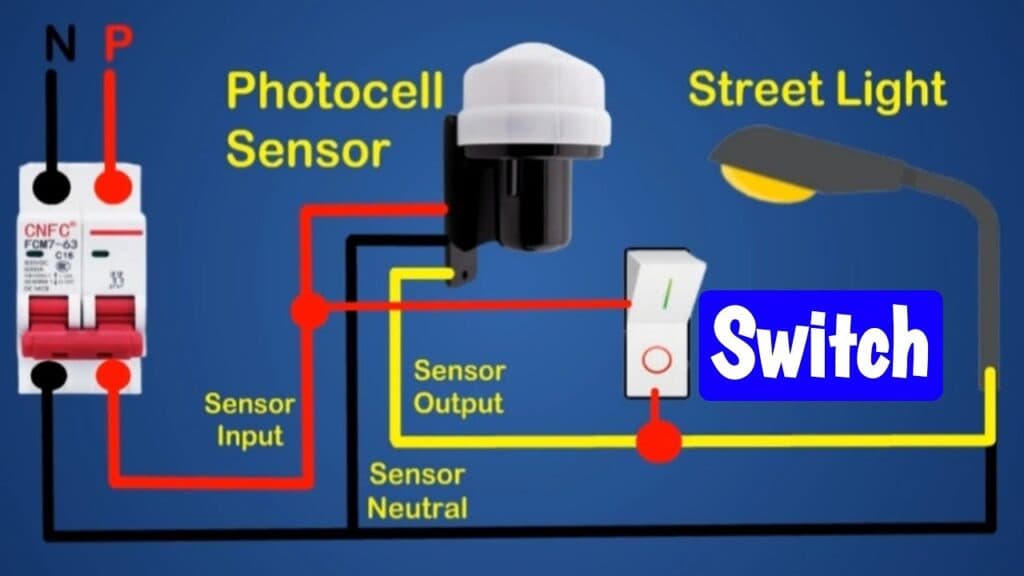
How Does Environment Affect Photocell Choice?
Is environment really that important when choosing a photocell? Yes. It often decides how long a device lasts and how steady it runs. Moist air, salt spray, and heavy dust can wear down weak sensors and make them fail. For cities and businesses, this means higher replacement costs. And avoidable downtime.
Matching photocell specifications with the environment reduces premature breakdowns. That’s why Long-Join always recommends tailoring sensore fotoelettrico solutions to specific working conditions.
Many decision-makers overlook the impact of location. Yet, it’s critical.
Ambiente | Risk | Photocell Feature Needed |
Humid Areas | Condensation, corrosion | High IP rating + sealed design |
Acid Rain Regions | Chemical damage | Acid-resistant casing |
Zone costiere | Salt spray corrosion | Anti-corrosion coating |
Arid Zones | Dust infiltration | Dustproof IP65+ design |
Choosing the wrong photo switch sensor for harsh conditions often leads to premature failure. That’s why Long-Join tailors its lighting control products to specific regions.
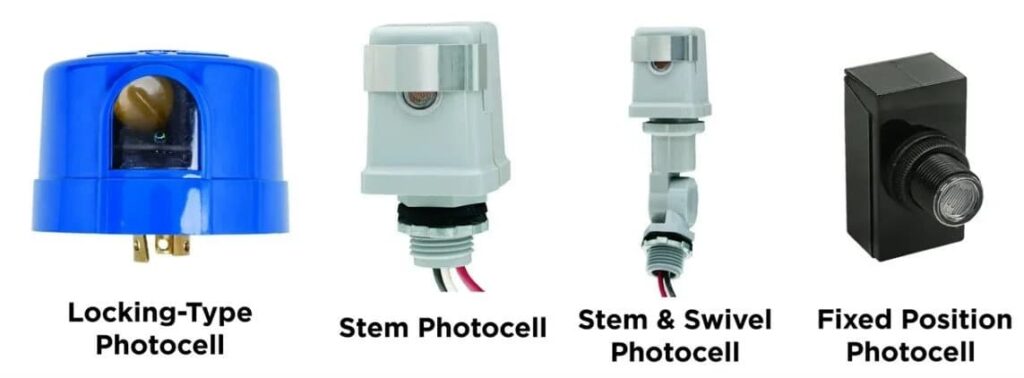
Why Partner with Long-Join for Photocell Solutions?
You might ask, why Long-Join? Unlike generic suppliers, we focus on reliability, innovation, and compliance. Our photocell control devices are:
By combining decades of engineering with modern IoT capabilities, we deliver photocells that don’t just switch lights on — they make cities smarter.
Conclusione
Fotocellule look small. Yet they play a big role in how modern societies control and use light every day. It starts with a simple dusk-to-dawn porch sensor. It scales to a street-light controller in a smart city. Pick the right one to boost efficiency, ensure safety, and support sustainability.
When selecting your next sensore fotocellula, always weigh type, environment, and technical features. And when in doubt, rely on trusted partners like Long-Join — where innovation meets reliability.
Link esterni:
●https://optics.ansys.com/hc/en-us/articles/360042851633-CMOS-Photoelectric-conversion
●https://logoslighting.com/blog/how-do-dusk-to-dawn-and-photocell-sensors-work-in-led-lighting/
●https://nl.rs-online.com/web/c/automation-control-gear/sensors/photoelectric-sensors/?srsltid=AfmBOoqairRev5hyTZxd5cU8_jgxOG0sAYkGkSCNxr4J2zXJBCeVKo9h
●https://www.zhagastandard.org/index.php?option=com_content&view=article&id=340:zhaga-enables-iot-upgradeable-outdoor-led-lighting-fixtures&catid=22
●https://www.nema.org/membership/products/view/lighting-systems

